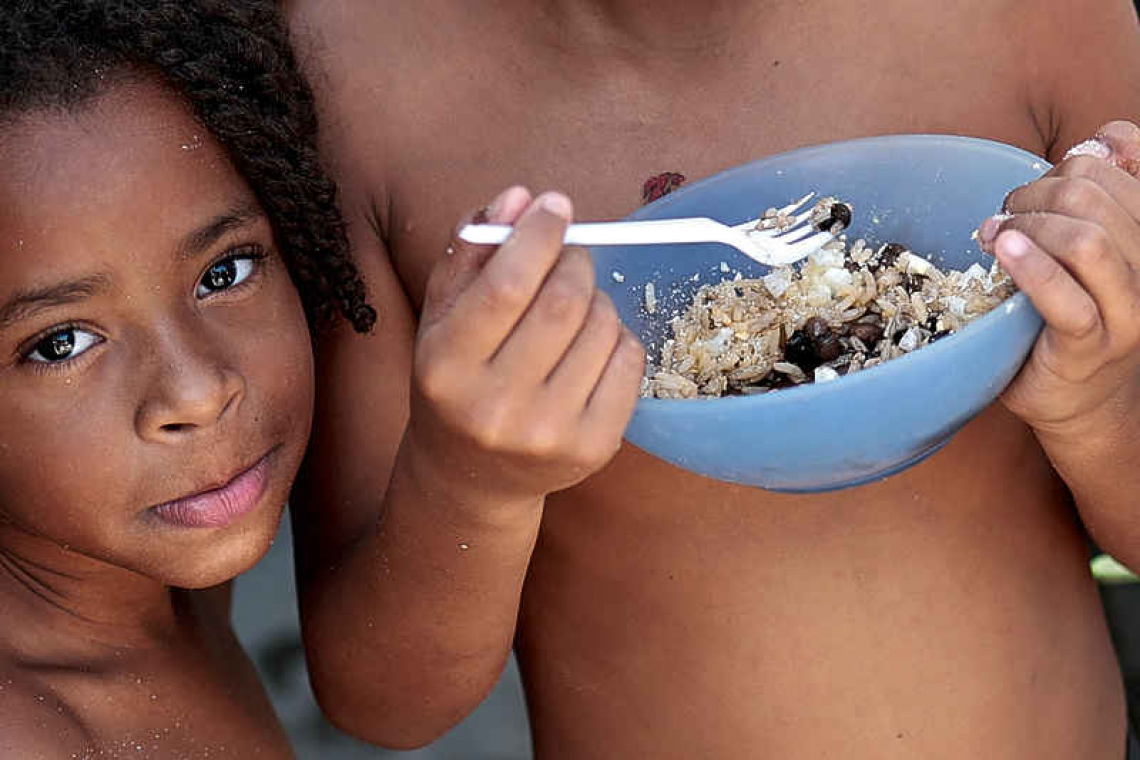BRASILIA--The specter of hunger hangs over Brazil's presidential race this year like few before it.
Rampant inflation and fallout from the pandemic have pushed food insecurity here to levels nearly unrecognizable a decade ago. One in three Brazilians say they have struggled recently to feed their families.
Trailing in the polls and eager to offer relief, President Jair Bolsonaro dribbled budget rules to boost Brazil's main welfare programme by 50% through the end of the year. But that has failed to move the needle so far. Opinion surveys show his support among the poorest Brazilians flat or flagging since the more generous payouts started.
Welfare recipients interviewed by Reuters in a half dozen states were reluctant to give Bolsonaro credit for the expiring election-year benefits. Most said they are pulling for his left-wing rival, former President Luiz Inacio Lula da Silva, who slashed hunger and extreme poverty with the help of a commodity boom during his 2003-2010 presidency.
In the slums of Brazilian cities, families are struggling to feed themselves as hunger rises in the powerhouse food exporter. "We're the forgotten ones. There is no lunch today," says Dona Monica in a "favela" called Arco Iris (Rainbow) on a river smelling of sewers and urine in the northeastern city of Recife where dengue is rife.
In the center of Sao Paulo, Brazil's largest city, Carla Marquez lives in a room paid for by a church with her husband Carlos Henrique Mendes, 25, and 5-year-old daughter. "We haven't bought food in ages. Prices are absurdly high. I've nothing to give her," the 36-year old mother said in tears.
Brazil's election looks to be yet another case of soaring global food inflation unsettling incumbents, but hunger has been mounting a comeback in Latin America's largest economy for the better part of a decade. Just eight years ago, Brazil hit its U.N. target for eliminating widespread malnourishment ahead of schedule. Since then, the share of Brazilians who say they cannot feed their families in the past 12 months has more than doubled to 36%, according to the Getulio Vargas Foundation (FGV) think tank.
The result is a consensus across Brazil's political establishment that the country needs a stronger social safety net. Almost every major party and candidate has backed 'emergency' cash stipends to 20 million families, which benefit roughly one in four Brazilians – making it one of the world's most far-reaching welfare programs.
FGV's Marcelo Neri says he has never seen hunger so central to the electoral debate. "The whole political spectrum is talking about food insecurity, the emphasis is everywhere," he said.
Bolsonaro and Lula both promise they will work to extend this year's more generous welfare programme or even expand it. Neither has explained how they would fund this – but analysts reckon it will mean the end of a constitutional spending limit that has defined fiscal policy for the past six years.
Voter opinion polls show that Bolsonaro did manage to narrow Lula's advantage earlier this year by increasing Auxilio Brasil and working to lower fuel costs, but Lula has begun to pull away again in the last two weeks. Lula's polling lead widened to 17 percentage points in a survey by pollster IPEC published on Monday, ahead of Sunday's first-round vote, with 48% of voter support to 31% for Bolsonaro. The poll showed Lula could win outright, with 52% of voter intentions excluding abstentions and null votes.
If the race goes to a second-round runoff, Lula would win by 54% of the votes versus Bolsonaro's 35%, according to the IPEC poll, which had a margin of error of 2 percentage points. "The aid has not generated the effect the government had expected. The increase was seen by people as an electoral maneuver and they are rejecting the ploy," pollster Felipe Nunes, of Quaest Pesquisa e Consultoria, told Reuters.
FGV economist Neri agreed Lula's credibility is higher among Brazil's poor, because Bolsonaro's social welfare measures have been erratic. The government reduced and then suspended emergency aid after the COVID-19 pandemic, and when welfare was restored it was at a lower value, he said.
Meanwhile, food prices have continued to go up, driven up by fuel and transport costs, and have risen 9.83% in the year. "People say Bolsonaro is helping. But he gives and then takes it away. It was much better with Lula," said Luciana Messias dos Santos, 29.







